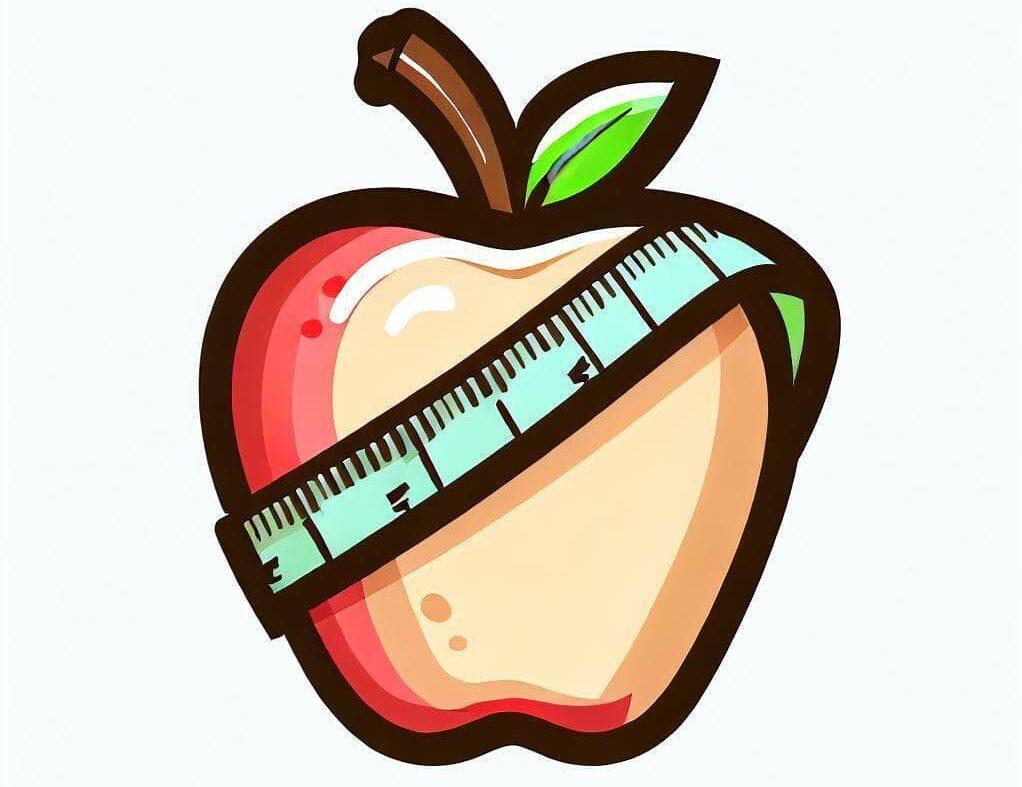Are Cheat Meals Helpful or Harmful for Weight Loss?
This post may contain affiliate links which means I may receive a commission for purchases made through links at no extra cost to you. See my disclosure policy for more information.
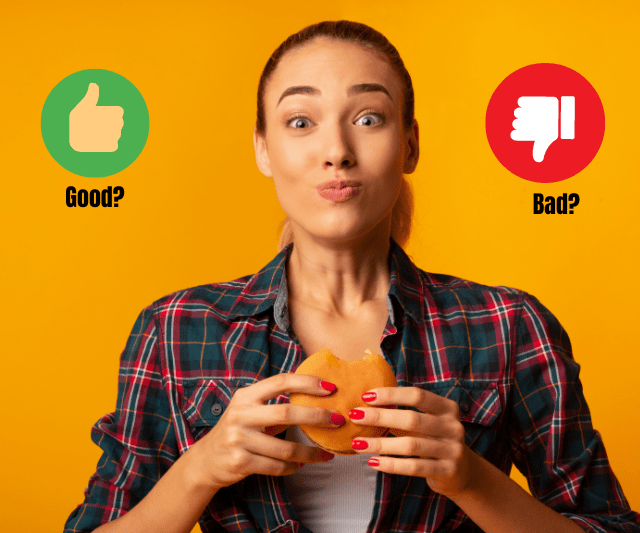
Let’s begin with a scenario.
You have been on your weight loss journey for three months, meticulously counting calories, planning your meals, and hitting the gym regularly.
Your progress is evident; you feel more energetic, your clothes fit better, and you can see the difference in the mirror.
However, there was one constant challenge you face: the temptation of cheat meals.
One Friday evening, after a particularly tough week at work, you found yourself craving your favorite pizza from the local pizzeria.
You have managed to resist it for weeks, convincing yourself that the grilled chicken and vegetables were just as satisfying.
But tonight was different. The thought of that crispy crust, gooey cheese, and savory toppings was all you could think about.
As you sat on your couch, scrolling through social media, you saw a post from a friend who had just enjoyed a decadent meal at a fancy restaurant.
The perfectly styled photo of a loaded pizza caught your eye. “You deserve a break,” you thought. “Just one cheat meal won’t hurt.”
Before you knew it, you had placed an order for a large pepperoni pizza. When it arrived, the aroma filled your apartment, making your mouth water.
You took a bite, and for a moment, all your worries melted away. The flavors were everything you remembered and more.
You savored each bite, telling yourself it was a reward for your hard work and dedication.
However, as the pizza disappeared, so did your sense of satisfaction. Guilt began to creep in. “Was this worth it?”
This scenario raises an important question many of you face on our weight loss journeys: Are cheat meals helpful or harmful? Let’s find out
Cheat Meal Vs Cheat Day For Weight Loss
Before we get down to the deets, let’s clear the difference between a cheat meal and a cheat deat.
| Aspect | Cheat Meal | Cheat Day |
| Definition | A single meal where you indulge in foods outside your regular diet. | An entire day where you relax dietary restrictions and eat freely. |
| Frequency | Can be incorporated once a week or a few times a month without much impact. | Best kept to a minimum, like once a month, to avoid derailing progress. |
| Calorie Management | Easier to keep within your calorie limits for the day. | Can lead to consuming a lot more calories than intended. |
| Nutritional Value | Can be planned to include nutritious foods that satisfy cravings. | Often leads to eating less nutritious foods throughout the day. |
| Impact on Diet | Less likely to impact overall diet if planned correctly. | Can disrupt dietary habits and make it harder to return to a healthy routine. |
Can One Cheat Meal Make You Gain Weight?
No, one cheat meal will not make you gain weight.
It depends on how often you are having your cheat meals and whether they are within your daily caloric limit or if they are surpassing it.
Let me give you an example, bear with me.
Suppose your caloric deficit diet is about 1500 kcal a day.
You decide to have a cheat meal that includes:
- Burger: 700 calories
- Fries: 400 calories
- Soda: 150 calories
Total calories for the cheat meal: 700 + 400 + 150 = 1,250 calories.
If your regular meals other than the cheat meal for the day add up to 1,500 calories, the total daily intake with the cheat meal becomes 1,500 + 1,250 = 2,750 calories.
This results in a caloric surplus of 2,750 – 1,500 = 1,250 calories.
So, since one pound of body fat is roughly equivalent to 3,500 calories, this means that if your cheat meal causes a surplus of 1,250 calories, you might gain approximately 0.36 pounds or about 5.76 ounces.
However, this is a simplified calculation.
What I am saying is that a cheat meal can contribute to a surplus in calories for that day; however, it’s the long-term pattern of eating that most significantly impacts weight.
A single cheat meal, when balanced with exercise and a healthy diet on other days, is unlikely to result in noticeable weight gain. It’s all about balance and consistency in one’s diet and lifestyle.
The Potential Benefits Of Cheat Meals
Let me give you all the good stuff about eating a cheat meal first then we ll move on to the not so good ones.
It Can Help You Stay Disciplined
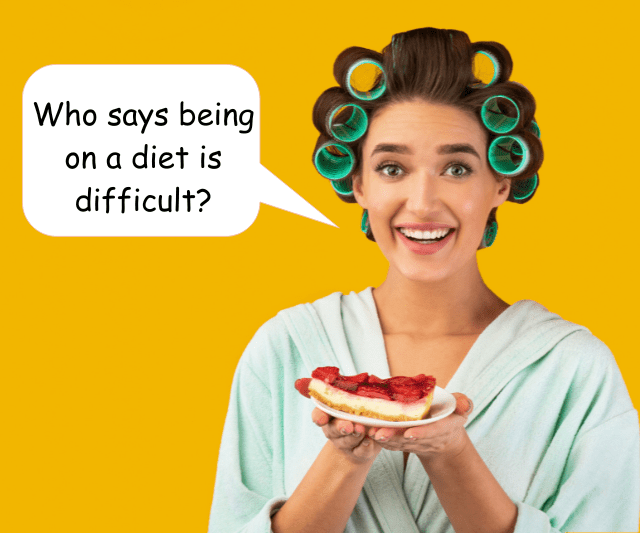
The biggest benefit of cheat meals is the psychological relief and motivation they provide.
When you’re on any diet where you have to restrict something, it can feel like you’re constantly saying no to your favorite foods, which can be tough mentally.
This sense of deprivation can lead to frustration and even make you want to give up on your diet altogether.
Having a planned cheat meal gives you something to look forward to and can make it easier to stick to your healthy eating plan the rest of the time.
For example, if you know that you can enjoy a slice of pizza or a piece of cake on Saturday, it can help you stay disciplined during the week.
This treat acts as a reward for your hard work and can boost your morale, making you feel more motivated to continue with your diet.
Instead of feeling like you’re missing out, you get to enjoy the foods you love in a controlled way, which can help you maintain a positive attitude and stay committed to your weight loss journey.
This mental break from the diet can recharge your willpower and make it easier to handle cravings and stick to your healthy habits in the long run.
It Gives You Social Flexibility

Having cheat meals can give you social flexibility, which is a fancy way of saying it makes hanging out with friends and family easier when you’re on a diet.
Let’s say you are on a caloric deficit diet to lose weight, but you’ve got a birthday party, a wedding, or just a regular dinner with friends.
These events usually have lots of tempting food, and it can be hard to stick to your diet when everyone around you is digging into burgers and cake.
That’s where a cheat meal comes in handy. It’s your once-in-a-while “get out of jail free” card; you get to bend the rules for a bit.
By planning a cheat meal for these social events, you don’t have to be the person who’s only munching on a salad while everyone else is having a feast.
It helps you enjoy the moment and the company without feeling left out or stressed about breaking your diet.
The Potential Downsides of Cheat Meals
Before you start running to the grocery store to plan your cheat meals, I want you to read about its downsides first.
Cheat Meals Could Make You Overeat
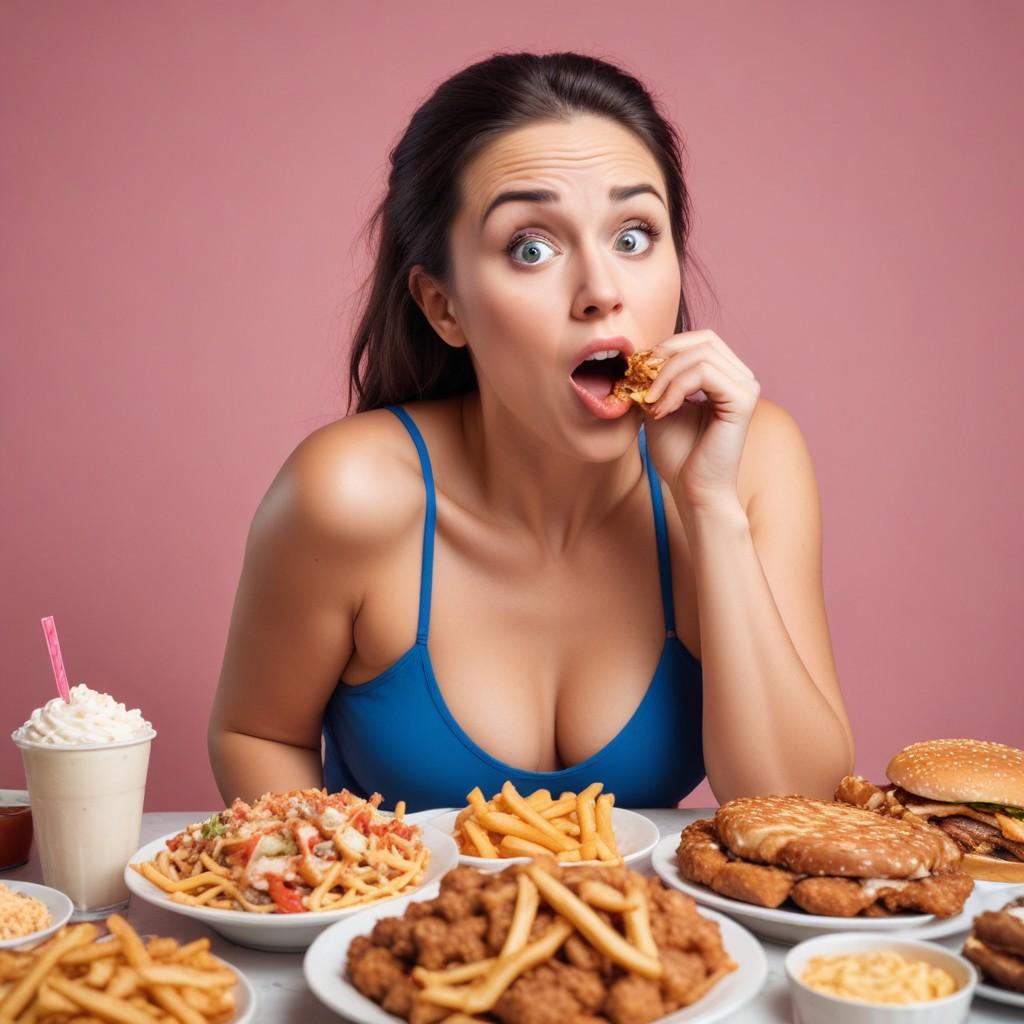
When you are on a weight loss diet, normally you would be avoiding or limiting any foods that are not supportive of your goals, these can be fast foods, chips, soda, cakes desserts, etc.
So when you choose to have one of these foods as your cheat meal, your brain will release all kinds of feel-good hormones such as dopamine and serotonin and you will want more of that feeling.
This feel-good factor can make it hard to stop after just one cheat meal.
It’s like when you’re watching a new true crime show late at night on Netflix and you think, “Just one more episode,” but then you end up watching the whole season.
Plus if you anticipated having a cheat meal for the whole day, and when you actually eat or drink what you were anticipating, it won’t feel enough, because so much dopamine has been built up in anticipation and to so quickly be done with it, the brain won’t be satisfied, it will want to continue to feel that way.
And when you overeat on your planned cheat meal, you could potentially undo a lot of your progress depending on how much of what you eat and how frequently. Which can make it harder for you to see continued results.
Plus, it can mess with your body’s sense of hunger and fullness, making it harder to stick to your diet in the long run.
It Can Turn Into a Habit
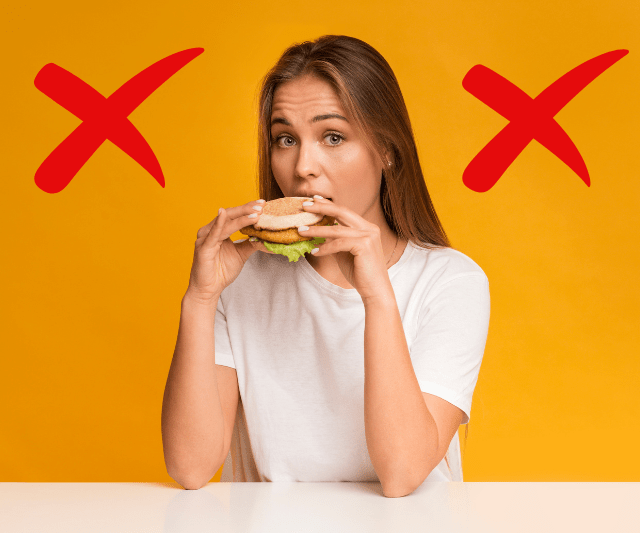
Indulging in cheat meals can be a slippery slope because it can start with just one planned treat and quickly turn into a habit of frequent indulgence.
Lets say you decide to have a cheat meal once a week to reward yourself.
The first time, you enjoy your favorite burger and fries, it feels great.
But then, the next week, you look forward to that cheat meal even more, and it becomes harder to stick to your diet the rest of the time because you’re constantly thinking about your next treat.
Soon, one cheat meal a week turns into two, and then maybe a whole cheat day.
You might start rationalizing that it’s okay to have extra snacks here and there because you’ve been good all week.
Before you know it, the balance tips and those small indulgences start to add up, making it much harder to stay on track with your weight loss goals.
The problem is that these frequent cheat meals can make you crave unhealthy foods more, and sticking to your healthy eating plan becomes a bigger challenge.
This cycle of increasing indulgence can derail your progress and make it difficult to develop and maintain healthier eating habits in the long run.
Also Read: The Worst Habits For Weight Loss
Cheat Meals Can Lead To Emotional Eating

Having a cheat meal is tempting because it tastes so good and it makes you feel happy temporarily.
This happiness comes from the brain releasing chemicals that make you feel good when you eat something delicious.
But this is where things can get tricky.
After having that cheat meal, you might start to associate those feel-good feelings with eating, and you might find yourself reaching for food the next time you’re feeling down or stressed, even if you’re not really hungry.
This is emotional eating—when you eat to make yourself feel better emotionally, not because your body needs food.
It’s like if you had a bad day and you treat yourself to a shopping spree to cheer up, except with food.
The problem with emotional eating is that it can create a cycle.
You feel bad, you eat to feel better, you feel guilty for breaking your diet, and then you feel bad again.
Like being on a seesaw that you can’t get off.
And because emotional eating often involves less healthy food choices, it can lead to weight gain, which is the opposite of what you want on a weight loss diet.
Also Read: The Biggest Mistakes People Make When Counting Calories For Weight Loss
Best Tips For Eating Cheat Meals in a Weight Loss Diet
So if you do want to have your favorite treats every now and then, which we call a “cheat meal”, here is what I would like you to keep in mind.
Plan in Advance

By planning when and what you’ll eat, you can make sure that this special treat doesn’t turn into an all-you-can-eat buffet that lasts all weekend.
When you plan, you’re in control. You can decide to have that slice of pizza on Saturday night because you’ve been eating healthy all week, and you know you’ll go back to your diet right after.
It’s very much like budgeting your money so you can buy a little something special without going broke.
Planning also helps you enjoy your cheat meal without guilt because you know it’s part of your overall diet strategy, not a sudden crash off the wagon.
Plus, planning your cheat meal can help you balance out your calories.
If you know you’re going to have a big dinner, you might eat lighter during the day.
Similar to how when you are saving up for a big purchase—you cut back a little here and there so you can afford it.
In the end, planning your cheat meals can help you stay on track with your weight loss goals, making sure that one slice of cake doesn’t turn into a whole cake.
Keep It to a Meal, Not a Day

A cheat meal is like a short, scenic detour on a long drive—it’s a brief change of pace that can make the overall trip more enjoyable.
But if that detour turns into an extended road trip of its own, you’ll end up far from your intended route, which, in diet terms, means straying from your calorie goals.
Let’s say your daily calorie budget is 1,500 calories, and you’ve been hitting that target consistently.
A cheat meal might push you to 2,000 calories in one day, which isn’t a big deal in the grand scheme of things.
But if you turn that into a cheat day, you might end up consuming 3,000 or more calories, which can not only halt your progress but potentially reverse it.
Similar to when you are shopping: spending a little extra on a treat once in a while won’t break the bank, but if you make a habit of splurging, you’ll soon find your savings dwindling.
Avoid Having Cheat Meals Too Often
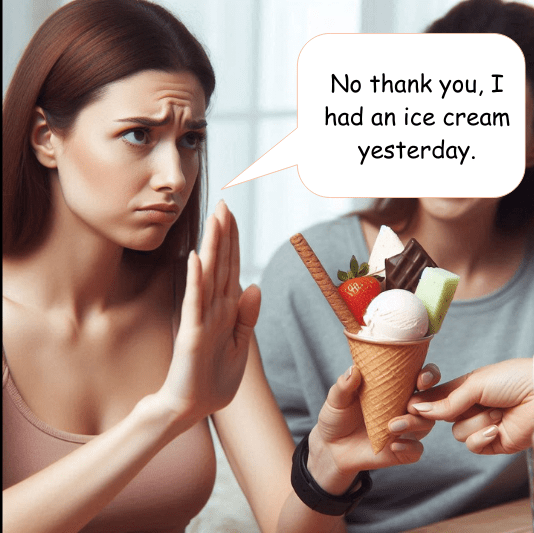
A cheat meal is when you eat something that’s not part of your diet plan, like a big slice of cake or a plate full of fries and a burger.
It’s okay to have a cheat meal once in a while; it can even make the journey more enjoyable and help you stick to your path in the long run.
But if you have cheat meals multiple times in a week, you might find it harder to stick to your healthy eating routine.
Your body gets mixed signals, and it can mess with the way it uses food for energy.
Plus, cheat meals often have a lot of calories, which can add up quickly and undo the progress you’ve made. It’s like two steps forward and one step back.
So, while an occasional cheat meal can be a nice break, having them too often can slow down your weight loss or even stop it altogether.
It’s all about balance and keeping those cheat meals as a special treat, not a regular guest on your daily menu.
Also Read: The Best And Worst Drinks For Weight Loss
Try to Keep Your Cheat Meals Healthier As Much as You Can

Many people think of cheat meals as a time to indulge in foods that are typically off-limits, like chocolates, ice creams, chips etc.
However, cheat meals can still be enjoyable without being unhealthy.
You can make smarter choices that satisfy your cravings while also providing nutritional benefits.
For example, if you’re craving a burger, you could opt for a grilled chicken or veggie burger with whole grain buns and plenty of fresh toppings like lettuce, tomatoes, and avocado.
If you have a sweet tooth, consider having a piece of dark chocolate or a homemade fruit smoothie instead of a high-calorie dessert.
These choices allow you to enjoy delicious foods without loading up on unhealthy fats, sugars, and empty calories.
By finding healthier alternatives for your cheat meals, you can indulge in flavors you love while keeping your diet balanced.
This way, you can enjoy your cheat meals without feeling guilty or worried about derailing your progress, making it easier to stay on track with your overall health goals.
Conclusion
Cheat meals can be both good and bad for weight loss. It really depends on how you use them and how often you use them
If you have a cheat meal once in a while and it makes you happy, it can help you stick to your diet better.
But if turn that cheat meal into a cheat day, it might mess up your diet plan.
The trick is to enjoy your favorite foods in small amounts without going overboard your daily caloric limit.
That way, you can have the best of both worlds: enjoy your treats and still lose weight.
This post may contain affiliate links which means I may receive a commission for purchases made through links at no extra cost to you. See my disclosure policy for more information.
Rahul is a professional nutritionist certified by the International Sports Sciences Association (ISSA) and a personal trainer certified through the American Council of Exercise (ACE). He has a special interest in the science of nutrition and how it can impact the body.
